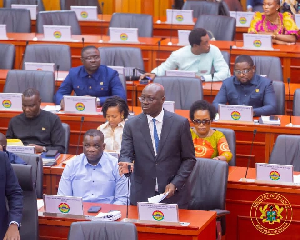Accra, June 30, GNA - Mr Joseph Henry Mensah, Chairman of the National Development Planning Commission (NDPC) on Thursday said the increase in enrolment in basic schools due to the introduction of the Capitation grant was not a guarantee for quality education. He therefore, called for the provision of incentive packages for teachers especially in the rural areas to improve on their performance because their services were vital in ensuring quality education. "Most teachers posted to the rural areas see it as a punishment rather than making a contribution to the country's socio-economic development," He added.
Mr Mensah made the observation at the inauguration of Akuapem Community Foundation (ACF) Endowment Fund in Accra. The Foundation, an independent grant-making organization, was established on April 14, last year to improve the living standards of people within the Akuapem Traditional Area.
Mr Mensah expressed concern about the poor performance of students in Junior Secondary Schools (JSS) especially in the rural areas. "How come that 30 schools within the Akuapem Traditional Area scored zero at last year's Basic Education Certificate Examination (BECE)," he added.
Mr Mensah called for a new social contract between Government, teachers and health professionals to forestall the perennial strike actions experienced in the educational and health sectors in the country.
"We have to meet and come to some social understanding that we are partners in developing the country," he said. Oseadeeyo Addo Dankwa III, Okuapemhene, commended executives of the Foundation for their hard work and selflessness devotion to duty to promote the welfare of citizens within the traditional area. He noted that activities of the Foundation would promote unity, progress and development of Akuapem Traditional Area and leave a legacy for posterity.
Mr Paul S. M. Koranteng President of the Foundation said it would build and improve on the capacity of organisations and agencies undertaking development projects to improve on the socio-economic development in the area.
Professor Akonno Gyasi, Vice President of the Foundation said the Board of Directors as Trustees would supervise and administer the fund through the establishments of committees, including an Investment, Grants and an Audit committee to ensure transparency and accountability. He said about 10,000 people within the area had been targeted to contribute a minimum of 10,000 cedis per person monthly over the next 10 years.
"With such contributions, by the end of 2016, we expect to realise about 12 billion cedis," he said. The Foundation was established with an initial membership of 17.
Regional News of Friday, 30 June 2006
Source: GNA












